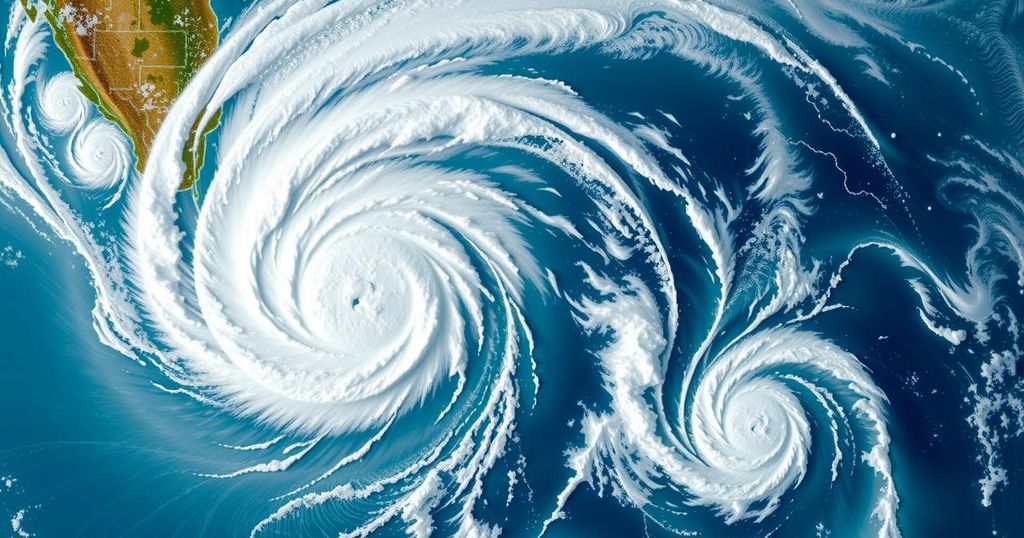Cyclone Chido Strengthened by Climate Change, Study Reveals
A study by Imperial College London attributes intensified Cyclone Chido to climate change, indicating a 40% increase in the likelihood of such storms in today’s warmer environment. Chido has significantly impacted Mayotte, classified as a Category 4 storm, and may result in a rising death toll. Researchers found an increase in wind speeds correlating with climate change effects, highlighting the growing risks of severe tropical storms due to rising global temperatures.
A preliminary study by scientists at Imperial College London indicates that climate change has significantly intensified Cyclone Chido, which struck the Indian Ocean archipelago of Mayotte. Notably, this assessment suggests that cyclones of Chido’s magnitude are now 40 percent more likely to occur in the warmer climate of 2024 compared to pre-industrial times. Chido has emerged as the most destructive cyclone to impact Mayotte in nearly a century, with its Category 4 classification highlighting its severity as it flattened numerous makeshift homes across the territory.
The extent of the disaster is still being assessed; however, officials have expressed concern that the death toll may eventually reach the thousands. Researchers focused on the relationship between global warming and tropical storms, utilizing advanced computer modeling techniques to simulate numerous cyclone scenarios in order to deduce the effects of recent warming. Their findings indicated an increase in wind speeds near Chido’s landfall by approximately 3 miles per second compared to previous climate conditions prior to the onset of industrialization.
Although France’s weather service refrains from directly attributing Cyclone Chido’s intensity to climate change, it does acknowledge that the increasingly warmer oceans, a result of human activities, have led to greater storm severity. Mayotte experienced the cyclone’s full impact, and the trajectory of Chido was identified as a critical factor in its catastrophic consequences. Given that global temperatures have risen nearly 1.3 degrees Celsius since pre-industrial times, scientists assert that this additional heat contributes to the enhanced frequency of severe weather events. Warm air is capable of holding more water vapor, while elevated ocean temperatures accelerate evaporation, further fueling the conditions necessary for tropical storms.
The relationship between climate change and extreme weather events, particularly tropical cyclones, is an area of growing concern among scientists. As global temperatures rise due to human-induced factors, the likelihood of increased storm intensity and frequency also rises. Cyclones, characterized by their powerful winds and destructive potential, are significantly influenced by ocean temperatures and atmospheric changes, making this research crucial for understanding future risks and impacts on vulnerable regions such as Mayotte, which faces unique socio-economic challenges.
In summary, research leads to the conclusion that climate change has played a vital role in amplifying the intensity of Cyclone Chido. This cyclone not only represents the most severe storm to hit Mayotte in decades but also serves as a stark reminder of the escalating threats posed by climate change on vulnerable coastal regions. As global temperatures continue to rise, the implications for cyclonic activity and the associated humanitarian risks are increasingly alarming.
Original Source: www.rfi.fr




Post Comment